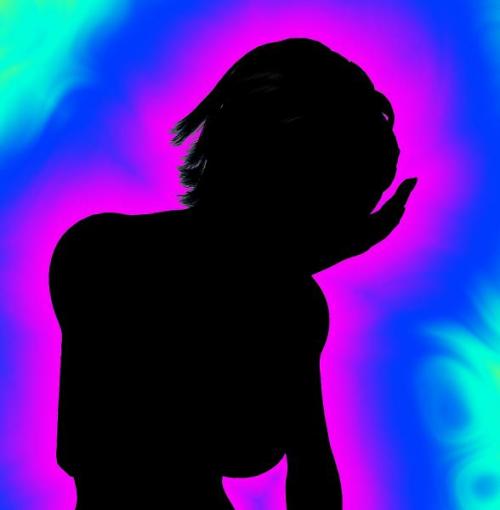
Most people with schizophrenia are neither violent nor homicidal
If you have read my work for a variety of mental health magazines and my other blogs you will know by now that I have a diagnosis of paranoid schizophrenia. I'm not a "paranoid schizophrenic" -- this is a stigmatising and prejudiced tabloid term as used often by reporter Chloe Griffiths in the Liverpool Echo, who this week covered the story, also carried by Mental Healthy, that 24 year old Kyle Moores attacked fellow patient Robert Searle in Ashworth Special Hospital on Merseyside. Because Ashworth is on Merseyside, there are frequent stories about it in that local paper.
It has taken me more than 5 years of campaigning, blogging and complaining to the BBC to prevent them reporting this kind of incident, which happens only 1.3 times per year in a hospital setting in any given year, according to the latest Mental Health Today Handbook. The BBC didn't report this story anywhere, not even on North West Tonight on TV or on its website. I have won my battle with the BBC -- for now at least.

So I was very concerned to see that my colleague Catherine Walker has not only reported the story on a website friendly towards people with my diagnosis -- and we make up 1% of the population, the same who have diabetes -- but used the term "paranoid schizophrenic". At the end of this post, I will link to the blog entry I wrote last time the BBC won the battle over the Liverpool Echo, and give links to guidelines on how to report stories about people with mental health conditions who -- only extremely rarely -- in fact fewer than once per million people in the UK population per year -- are homicidally violent or aggressive towards anyone else. And indeed people with schizophrenia account for just 5 stranger-killings a year in Britain too.
Throughout my time as an inpatient on psychiatric wards in North West England I have never once witnessed, or been subjected to, violence, aggression, intimidation, threats or harm of any kind. OK so I've attempted suicide in hospital -- and indeed around 40% of peope with schizophrenia will attempt suicide during their lifetimes, and 10% will succeed. Every death or attempted killing at the hands of someone else is a tragedy and it is understandable that the tabloid press want to cover the stories about these. I was once a hard news journalist working for the BBC and Sky -- although I have never reported anything negative about anyone with schizophrenia. But I have endless and unlimited sympathy for the families and friends of victims, and would never want to diminish in any way the horror of such events. But suicide is the more common tragedy and the main result of stories about schizophrenia in the mass media is to frighten the public and stigmatise people with the illness.

Tabloids, and in the past, the BBC, point(ed) a very unbalanced and stigmatising view of people with schizophrenia and it's only through the UK's Time to Change campaign and others like it around the world that the public, via the media, are beginning to understand how common this diagnosis is and how gentle and harmless most people with it are.
For the facts on schizophrenia please visit schizophrenia and read my blog post BBC NWT 1-0 Liverpool Echo . I hope I've helped bust some of the myths surrounding severe mental illnesses and violence/homicide in this blog and if you're a journalist please read Irish charity Shine's guide to reporting schizophrenia: www.shineonline.ie/index.php/component/docman/doc_download/48-guidejournalists?ItemId=77. It's an essential read ... copies on their way to Chloe and Catherine!
Finally, if you have been affected by the issues in this blog post and need emotional support please contact either our partners SANEline (6pm-11pm) on 0845 767 8000 or Samaritans (24 hours a day) on 08457 90 90 90. Together we can and will fight and beat stigma. Please be as open as I am about your diagnoses as it's only once people open up and demonstrate how safe they are to friends, colleagues and the media, that stigma will finally be defeated.





Comments
Thank you so much for your kind support. Ignorance and stigma against people with schizophrenia are still so widespread aren't they? I was planning a fun blog about the more quirky advice I've been given during CBT and by other mental health professionals this weekend but the reporting of this story made me spring to the defence of people with my diagnosis instead. Look out for that post next week!
Hi Ian, I have just read your blog and it has really made me think. Reporters/writers do have a weight of responsibility both to their readers and to do justice to the subect matter- your insight has given me food for thought. Thank you for such a well written and informative blog.
Liz
Liz thanks so much for your support and encouragement. I firmly believe that most prejudice and stigma surrounding schizophrenia originates from the media - whether films, TV and radio or, more often, newspapers and magazines and websites. I campaign for Time to Change, write for various mental health magazines, complain to editors, and blog, and I hope that I can inspire others like me to do the same! Ian.
HI Ian,
Thank you for this post. It seems as though I may have taken my eye off the ball by allowing the original article in question to be published by one of our news editors. It has now been removed.
As the editor of this site I take full responsibility for this, although I was unaware of the piece until this morning when it was removed. I have also asked the reporter in question to look into the way schizophrenia has been portrayed in the media and the reality of the condition.
This I hope will educate our writers and editors as well as our audience, and highlight our responsibility to accurately portray mental illness.
Charlotte
Hi Charlotte. Thank you so much for your support both privately and publicly for people, like me, with a diagnosis of paranoid schizophrenia. I was absolutely thrilled to read the feature you asked Catherine to write which I have just read as I've been in Manchester all day.
I think all is forgiven, Catherine, and I am so pleased that you have realised how important it is to break the link between severe mental illness and serious crime.
I, too, in my time as a hard news journalist have come across rare times when people with schizophrenia have been in the news. But because I've had depression since 16 I have always taken a sensitive approach to this -- witholding diagnoses and I think I'm right in saying I never once mentioned mental health.
Uncovered and Mental Healthy are beacons of excellence in mental health reporting and I am so grateful to you and Charlotte for your research and conclusions.
Charlotte, I know I say this a lot, but it is a privilege to blog for you and I feel very happy and included under your editorship.
Ian
Post new comment